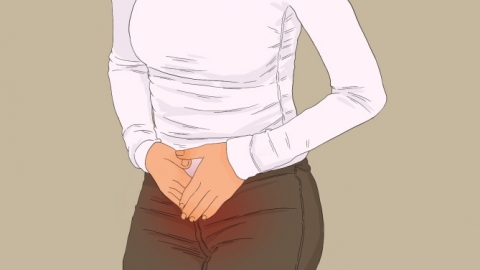What causes itching, peeling, and cracking of the external female genitalia, and what should be done about it?
Itching, peeling, and cracking of the female external genitalia may be caused by improper local hygiene, friction from clothing, vulvar eczema, vulvovaginal candidiasis, or vulvitis. Symptoms can be improved by adjusting cleaning habits, changing clothing, or using medication. If symptoms worsen or are accompanied by abnormal discharge, prompt medical attention is necessary.
1. Improper Local Hygiene: Excessive cleaning or use of irritating cleansers can damage the skin barrier of the vulva, leading to itching, dryness, peeling, and even cracking. It is recommended to gently wash the vulva with warm water, avoid frequent douching, and pat the area dry with a clean towel after washing.
2. Clothing Friction and Irritation: Wearing tight, non-breathable synthetic underwear for prolonged periods can cause repeated friction against the vulvar skin, resulting in skin damage, itching, peeling, and cracking. It is advisable to switch to loose-fitting, breathable cotton underwear and avoid wearing non-breathable garments such as tight jeans.

3. Vulvar Eczema: Conditions such as allergies or moisture exposure can trigger vulvar eczema, causing inflammatory skin reactions including intense itching, redness, papules, peeling, and skin fissures. Patients may use calamine lotion, desonide cream, or loratadine tablets under medical guidance to relieve symptoms.
4. Vulvovaginal Candidiasis: Infection with Candida species causes inflammation that irritates the vulvar mucosa and skin, leading to itching, burning pain, peeling, and in severe cases, skin cracking. Treatment may include clotrimazole suppositories, miconazole nitrate cream, or fluconazole capsules, used under a doctor’s supervision to alleviate discomfort.
5. Vulvitis: Vulvitis caused by bacterial infection or physical/chemical irritation leads to inflammation, resulting in redness, itching, and peeling of the vulvar skin; scratching can easily lead to skin fissures. Patients may follow medical advice to use potassium permanganate solution, erythromycin ointment, or cephalexin capsules to improve symptoms.
Maintain cleanliness and dryness of the vulva, wear cotton, breathable underwear, follow a light diet avoiding spicy and irritating foods, drink plenty of water, avoid scratching the affected area, and ensure adequate rest to support skin recovery.







